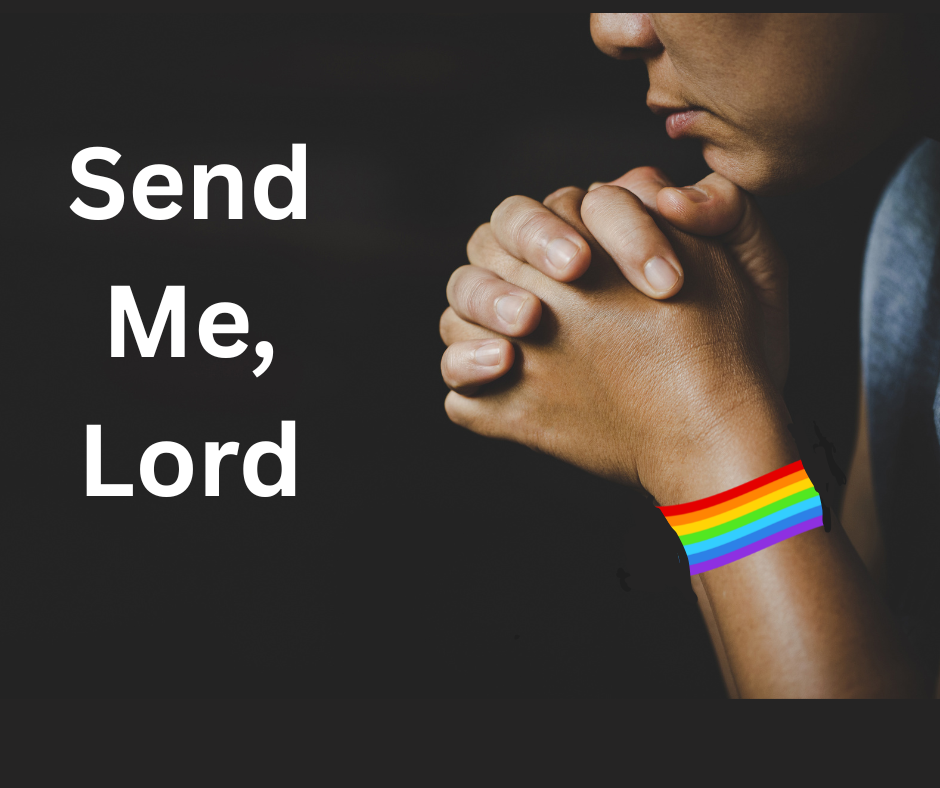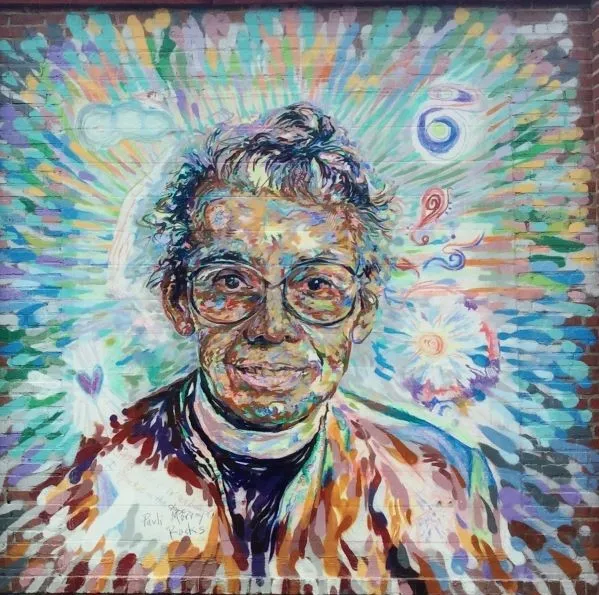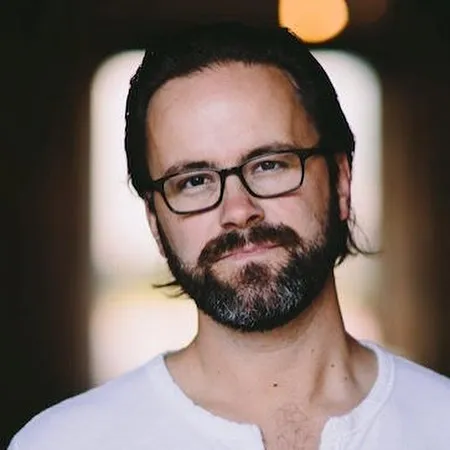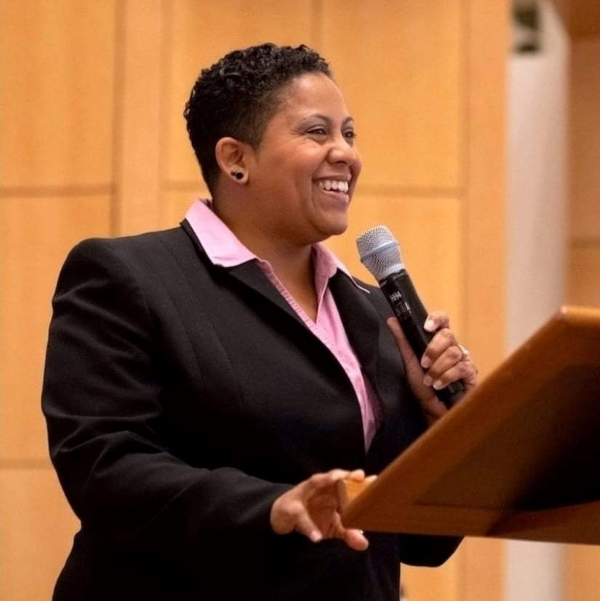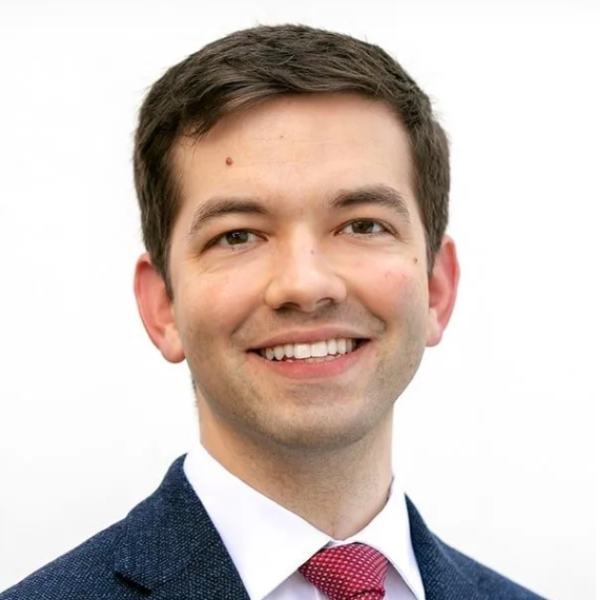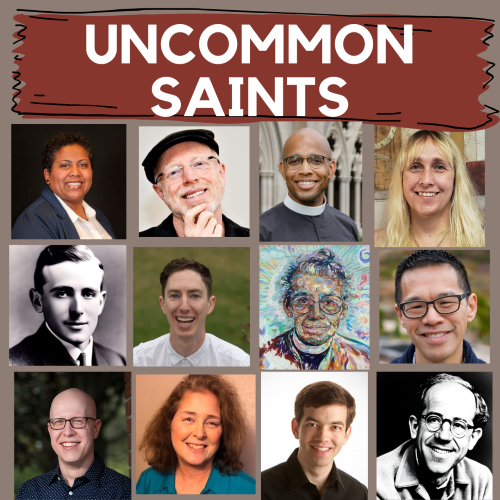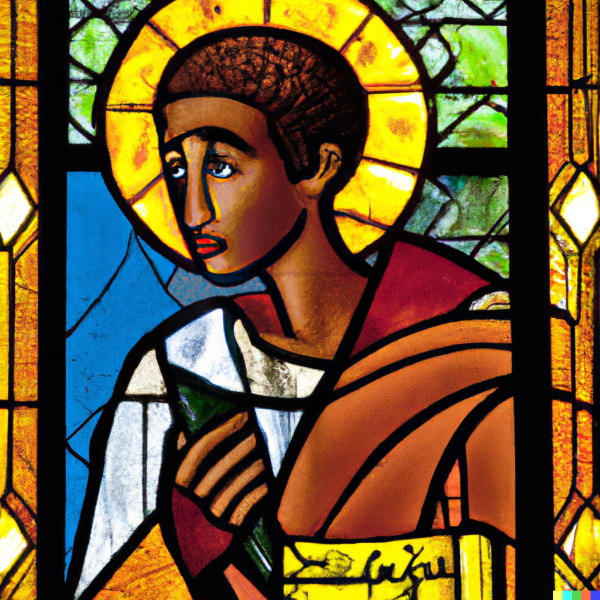This post was originally published at Karen Keen’s Substack, Bible, Sex, and Gender.
The Spirit of the Lord is upon gay, transgender, bisexual, and intersex people to be Christ’s witnesses and to build the Church. God has quickened my heart and imagination with this truth like never before. The seeds of this prophetic vision were growing in my heart two years ago, but only recently has it struck me with force. When I co-founded Bakos Project in 2023, a mentoring program for Christian LGBTQ leaders, I knew the conversation on sexual and gender minorities needed to shift from tired debates to the ways God is anointing LGBTQ people to serve the Kingdom of God.
But I didn’t fully grasp the greatness of this vision—that God might use sexual and gender minorities to transform a dying Church in the West or plant churches in Majority World regions. Was it possible that LGBTQ Christians might preach the gospel to American evangelicals, a population entangled in political syncretism? Was it possible LGBTQ Christians could plant churches in foreign countries hostile to sexual and gender minorities? How unfathomable! Who in the Bible Belt would ever listen to a gay evangelist? Who in the Majority World, where traditionalist views reign, would ever be converted by a trans preacher?
Yet, increasingly, my heart is stirred up for my people. I long to see evangelicals, the ones who taught me about Jesus, restored to their first love. Simultaneously, I feel passionate about bringing the gospel to a jaded generation that isn’t sure Christianity matters anymore.
As I engaged friends about this, it dawned on me that the early Christians were in the same boat as LGBTQ Christians today. They were a persecuted minority commissioned to bring the gospel to the majority. The Greeks thought Christians were fools, and the wider Jewish community considered a dying Messiah a stumbling block. Yet despite being considered weirdos with an absurd message, God used the early Christians to launch a movement that spread across the globe.
Paul tells a group of Christians in Corinth, “God chose the foolish things of the world to shame the wise; God chose the weak things of the world to shame the strong.God chose the lowly things of this world and the despised things—and the things that are not—to nullify the things that are” (1 Cor 1:27-28; NIV).
God’s plan is truly queer. I mean, how strange, how odd to bring about divine plans through people stigmatized as foolish, weak, lowly, and despised?
In choosing the “foolish,” God was—and is—freeing the “wise” from enslavement to their own self-righteousness. God intentionally appoints the lowly “so that no one may boast” (1 Cor 1:29, 31). To be clear, the “foolish” are not fools in God’s eyes, anymore than the “wise” are enlightened. But to the Greek and Jewish leaders of the 1st century, the early Christians were rejects. Some, like Paul, before his conversion, wanted to kill these bizarre Jesus followers. In the same way, gay, transgender, bisexual, and intersex Christians today are a stumbling block to those who expect God’s methods to be more “respectable.”
Jesus said, “Blessed are you when people insult you, persecute you and falsely say all kinds of evil against you because of me.” To be rejected is hard. We need belonging. But, paradoxically, the misfits—the queer ones—make the truth of God’s love more shockingly apparent. For when the Church realizes that God’s love and anointing extend even to us, they are stunned by the magnitude of God’s grace. Such realization can free those enslaved to elitism and conceit. Suddenly, they, too, realize it’s safe to let go of performative pretenses, for God’s grace is enough even for them, even for “self-identified holy ones.”
We need not be ashamed of our lowly state in the eyes of the world or the Church. For our Lord was also “despised and rejected” (Isa 53:3). And yet, such suffering is not in vain. Scripture says, for the joy set before him Jesus endured the cross (Heb 12:12). His suffering (and ours) bears fruit in paradoxical ways. Resurrecting power is here! When we are weak, we are strong.
God’s power is displayed through the lowly so that no one can boast. God is leveling the playing field. The power of this world corrupts, creating heirarchies and caste systems. But God’s power raises up the underdog. And that’s good news for oppressors too. The gospel means we can throw away the measuring sticks. We can cease striving out of our misguided sense of scarcity.
The good news is God’s abundant life is for everyone. The “riches” of God’s grace have been “lavished upon us” (Eph 1:7-8). God’s love “has been poured out into our hearts through the Holy Spirit,” so that we can radiate this divine love to all (Rom 5:5). And God is raising up LGBTQ Christians to proclaim this good news!
For centuries, the devil has convinced sexual and gender minorities that they are unchosen. But now, God is reviving the Church’s memory of Bakos’s commissioning. The 1st century Ethiopian enunuch, a sexual minority, was chosen and anointed by God (Acts 8). Deemed unqualified and barred from worshipping in the Temple, Bakos became an evangelist, a leader in the Church. Now that vision is being restored. LGBTQ Christians are answering the call to be Christ’s witnesses to the ends of the earth.

Only recently did I fully realize what the Spirit wants to do. My vision was limited. The current conversation concerning sexual and gender minorities centers almost entirely on ethical debates. But God is reshaping my prophetic imagination. The Spirit doesn’t want to simply defend LGBTQ people’s existence, the Spirit is anointing Christian LGBTQ leaders to proclaim the gospel of Jesus Christ and to build the Church.
Lately, I keep encountering LGBTQ Christians who want to talk about missions and evangelism. My eyes are opening to all the LGBTQ missionaries, church leaders, and community servants around me. As one example, I think of singer-songwriter Marsha Stevens-Pino who found Christ during the Jesus Movement and was discipled at the first Calvary Chapel. Over the past several decades, she has faithfully shared the gospel through her testimony and music. I was reminded of this in a recent Substack post, where Marsha shares one of her ministry stories:
I could not sell the Gospel short. It’s good news. I had to tell it. So, I sang a song or two as the stragglers came in. Then I sang the first song I wrote, “For Those Tears I Died (Come to the Water).” To my surprise several women sang or hummed along – so they knew it! I continued for another hour or so, sharing songs I had written about coming out and learning more about God’s love and how it applied to all of us.
Similarly, my friend Tim Otto has faithfully pastored an intentional Christian community and written on “biblical wisdom for a new monasticism.” Matthew Vines, founder of The Reformation Project, has preached powerfully on “The Heart of Christianity.” Pastor Amie, an evangelist, regularly travels the globe on mission trips, sharing the gospel, while caring for humanitarian needs. Rev. Marcus Halley proclaims the gospel of reconciliation, while caring for college students. Justin Lee, who founded one of the first prominent evangelical organizations for LGBTQ people, has shepherded hundreds of souls over the years. The list goes on and on, especially when we consider those who have gone before us like the remarkable Rev. Pauli Murray.

The next generation of LGBTQ leaders also reminds me of the great things God is doing. My friend Andy spent years working for an evangelical mission organization before coming out. He was forced to leave, but like Joseph, God is transforming harm into redemptive good. No one can squelch what God is doing. The Spirit continues to stir his heart for mission work and being pushed out means new avenues to serve in ways not previously considered.
This past weekend in Dallas, I had the privilege of attending a public worship event put on by CenterPeace, where LGBTQ Christians sang and shared their faith. The founder of CenterPeace, Sally Gary, has been serving as a pastor-at-large for decades. Her own denomination would not allow women (let alone a gay person) to be a pastor, but God calls whom God calls. The local newspapers don’t carry her name in the headlines, but God has worked through her to shepherd thousands of people over the years.

Therefore, dear LGBTQ Christian brothers, sisters, and siblings, rise up! Rise up! God has anointed you to be “the apostles, the prophets, the evangelists, the pastors and teachers,to equip his people for works of service, so that the body of Christ may be built up” (Eph 4:11-12). God has empowered you with spiritual gifts of hospitality, words of knowledge, encouragement, leadership, healing, generosity, faith and more (see Rom 12 and 1 Cor 12). You don’t need to defend your existence any longer! Instead lean into God’s calling on your life.
Like Bakos, who was barred from the Temple, go and evangelize your people! Like Joseph who was cast out of his family, preach to the foreigners in your exile! For when we are weak, we are strong. What you think is impossible and beyond your reach, God has made possible.
